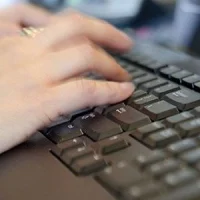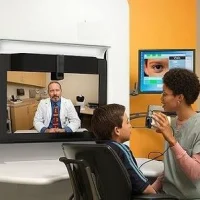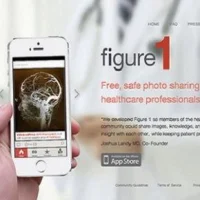Mobile apps targeted at patients with Parkinson's disease are being tested by researchers from the Center for Human Experimental Therapeutics (CHET) at the University of Rochester (N.Y.) Medical Center. The study aims to help researchers understand day-to-day struggles of those suffering from this illness, as well as how patients respond to various medications.
One of these apps is Parkinson mPower (Mobile Parkinson Observatory for Worldwide, Evidenced-based Research), which CHET helped develop for the iPhone. This app helps Parkinson’s patients track metrics such as balance, gait, dexterity, voice patterns and cognition, then send readings to researchers.
In just two months, mPower has enrolled 13,000 app users, says neurologist Dr. E. Ray Dorsey, co-director of CHET. While only about 10 percent of them have Parkinson’s, the rest will be part of control groups. The ongoing study is funded by the Robert Wood Johnson Foundation.
First Randomised Trial: Parkinson’s Telemedicine
People suffering from Parkinson's disease "often become socially isolated," notes Dr. Dorsey, who previously directed the neurology telemedicine division at Johns Hopkins Medicine in Baltimore. He and colleagues at CHET are also involved in the nation’s first randomised clinical trial of remote treatment of Parkinson’s disease -- also called Connect.Parkinson.
Preliminary results of the 18-state Connect.Parkinson study are promising, with data showing that 95 percent of Parkinson’s patients completed telehealth visits as scheduled. Moreover, virtual visits have increased the proportion of the time patients spend with a healthcare professional to 89 percent, compared to 25 percent for in-person encounters.
The only major complaint reported so far pertains to video quality, which is not always up to snuff, according to some clinicians. Researchers say this problem could dissipate as broadband networks and access improve.
“We are looking at quality of life, quality of care and reducing the burden on healthcare providers” in treating Parkinson’s patients," Dr. Dorsey says. He believes that telehealth can increase access to specialists for Parkinson’s and other movement disorders. Although the U.S. has more than enough neurologists to treat these patients, Dr. Dorsey says these specialists are not as geographically dispersed as the patient population, so many go without necessary care because of the hassle.
A pilot study he conducted while at Hopkins found that remote consultations save patients three hours of time and 100 miles of driving per visit. He and his research partners will be looking to confirm this, among other things, in the Connect.Parkinson study.
Source and image credit: University of Rochester (N.Y.) Medical Center
One of these apps is Parkinson mPower (Mobile Parkinson Observatory for Worldwide, Evidenced-based Research), which CHET helped develop for the iPhone. This app helps Parkinson’s patients track metrics such as balance, gait, dexterity, voice patterns and cognition, then send readings to researchers.
In just two months, mPower has enrolled 13,000 app users, says neurologist Dr. E. Ray Dorsey, co-director of CHET. While only about 10 percent of them have Parkinson’s, the rest will be part of control groups. The ongoing study is funded by the Robert Wood Johnson Foundation.
First Randomised Trial: Parkinson’s Telemedicine
People suffering from Parkinson's disease "often become socially isolated," notes Dr. Dorsey, who previously directed the neurology telemedicine division at Johns Hopkins Medicine in Baltimore. He and colleagues at CHET are also involved in the nation’s first randomised clinical trial of remote treatment of Parkinson’s disease -- also called Connect.Parkinson.
Preliminary results of the 18-state Connect.Parkinson study are promising, with data showing that 95 percent of Parkinson’s patients completed telehealth visits as scheduled. Moreover, virtual visits have increased the proportion of the time patients spend with a healthcare professional to 89 percent, compared to 25 percent for in-person encounters.
The only major complaint reported so far pertains to video quality, which is not always up to snuff, according to some clinicians. Researchers say this problem could dissipate as broadband networks and access improve.
“We are looking at quality of life, quality of care and reducing the burden on healthcare providers” in treating Parkinson’s patients," Dr. Dorsey says. He believes that telehealth can increase access to specialists for Parkinson’s and other movement disorders. Although the U.S. has more than enough neurologists to treat these patients, Dr. Dorsey says these specialists are not as geographically dispersed as the patient population, so many go without necessary care because of the hassle.
A pilot study he conducted while at Hopkins found that remote consultations save patients three hours of time and 100 miles of driving per visit. He and his research partners will be looking to confirm this, among other things, in the Connect.Parkinson study.
Source and image credit: University of Rochester (N.Y.) Medical Center
References:
Dorsey ER, Achey MA et al. (2015) A randomized controlled trial of telemedicine for Parkinson's disease (Connect.Parkinson) in the United States: Interim assessment of investigator and participant experiences [abstract]. Movement Disorders 2015;30 Suppl 1 :169
Latest Articles
healthmanagement, Parkinson's disease, telemedicine, telehealth, apps, randomised controlled trial
Mobile apps targeted at patients with Parkinson's disease are being tested by researchers from the Center for Human Experimental Therapeutics (CHET) at the University of Rochester (N.Y.) Medical Center.










